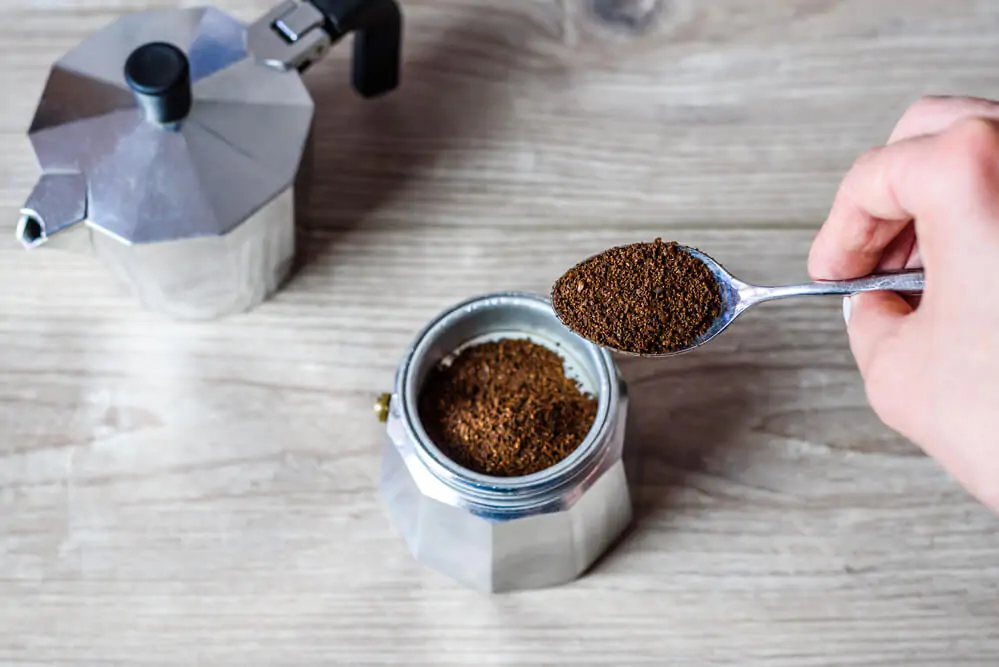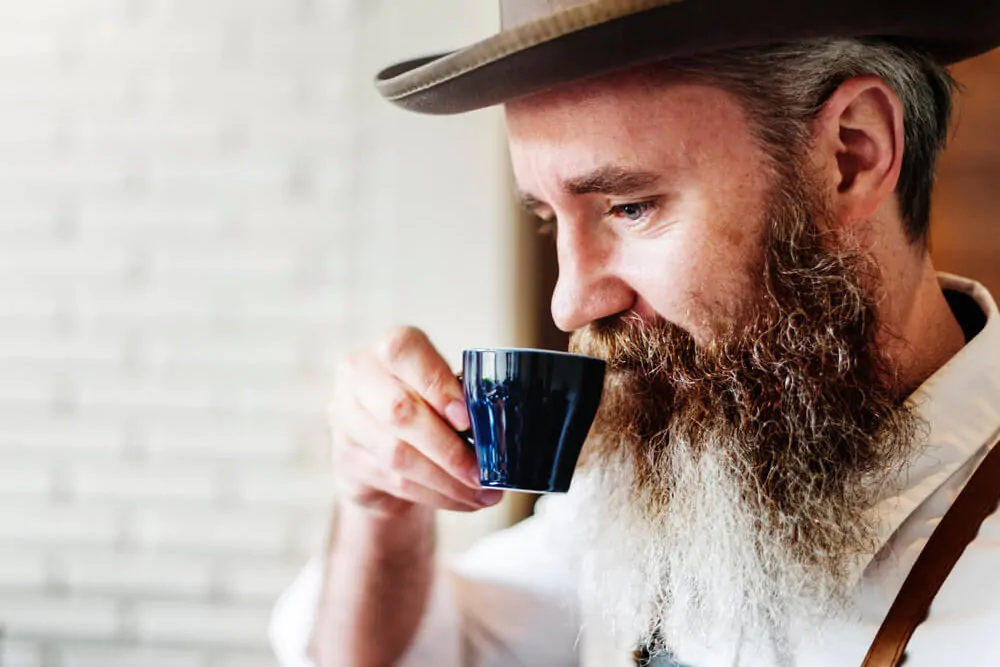How many tablespoons per cup of coffee? If you are interested in making the perfect cup of coffee, get the ratio of coffee to water correct! Learn more with our helpful article!

I know that I cannot get out of bed in the morning without a cup of coffee waiting in the carafe. You might feel the same way. At the same time, not every cup of coffee is the same.
You need to get the amount of coffee right when compared to the ounces of water. Often, this is called the golden ratio.
How many tablespoons of ground coffee do you need for each cup? How can you get coffee from Amazon and make it like a barista? There are a few factors that you need to keep in mind to determine how many tablespoons of coffee grounds per cup.
What Is the TBSP Per Cup Golden Ratio?
Did you know that there is a specific coffee to water ratio that refers to the perfect balance of coffee and water? This is called the golden ratio and it can make the best coffee. If you are looking for the best way to measure your coffee and water, you should use a scale.
If you use a standard measuring cup, your coffee beans may not be level. Even if you use coffee grounds, there may be a lot of conversions involved in your measurements. Therefore, make the process as easy as possible and consider using a scale instead.
If you are using a scale, you should use 10 grams of ground coffee for every 180 mL of hot water. If you are weighing your water, it is 10 grams of ground coffee for every 180 g of hot water. If you use a scale, you don’t have to worry about the packing density of coffee in your measuring cup.
What if You Use a Standard Tablespoon?
If you do not have a scale at home, you may decide to use a standard set of tablespoons in measuring cups. If that is the case, you should use 2 tablespoons of ground coffee for every 6 oz of water to ensure the correct tbsp per cup.
Depending on how finely your coffee has been ground, 2 tablespoons of coffee should weigh approximately 10 grams. This should make a standard 6 oz cup of coffee. On the other hand, keep in mind that not every coffee machine at the same.
If you are looking at your coffee pot, check the total water capacity closely. Some coffee pots may not provide standard 6-ounce measurements for every cup.
What Other Factors Will Impact the Taste of Your Coffee?

There are other factors that may play a role in the taste of your morning coffee as well. A few examples include:
- The Coffee Burr Grinder: If you want to ensure the best flavor possible, grind your coffee right before you brew it. If your coffee grinds make a lot of contact with the air, this can drastically change the flavor of your coffee. You might also want to play with how finely you grind your coffee if you are looking for the right flavor.
- The Water Temperature: You also need to think carefully about the temperature of the water. If the water is cold, it will not extract the flavor from your coffee grinds. As a result, your coffee may taste a bit thin, flat, or weak. On the other hand, if you use water that is boiling, you may scorch your coffee grinds. You want your water to be hot but not boiling.
- The Brewing Time: You should also think about the brewing method. The amount of time the water is in contact with your coffee grinds will also play an important role. For example, a standard drip coffee maker has a brewing time of approximately five minutes. If you are using a French press, the contact time will be anywhere from two to four minutes. If you are making an espresso, a cold brew, or a latte, you need to read the instructions carefully. Each of these is slightly different.
- The Type of Filter: Finally, the type of filter you use will also play a role in how your coffee tastes. For example, some filters are relatively large. You may have some coffee grounds at the bottom of your cup. If that is the case, these coffee grounds will continue to release essential oils. This could cause your coffee to taste too bitter. This is a matter of personal preference.
Consider these factors when you are trying to make the perfect cup of coffee.
The Final Word on How Many Tablespoons Per Cup of Coffee
The amount of coffee you need to use depends on how large your coffee cup is and how many cups of coffee you are making. If you are making a 6-ounce cup of coffee, you should use two tablespoons per cup.
On the other hand, if you want to get the measurements exactly right, you think about the golden ratio. The golden ratio is 10 g of coffee per 180 g of hot water. You will need a kitchen scale to get these measurements perfect.
Even though it may be a bit awkward to use a scale in the kitchen, it could dramatically improve the taste of your coffee to determine the exact number of tablespoons per cup of coffee.
FAQs About how many tablespoons of coffee grounds per cup
Do I need to use more coffee to grounds to make my coffee taste stronger?
You don’t necessarily need to use more coffee grinds to make your coffee taste stronger. You may simply need to let your coffee brew for a little while longer. That way, the water will extract more oils and flavors from the beans.
Alternatively, you may want to use hotter water.
Is the brewing time for a French press different from a typical coffee maker?
Yes. With a French press, you usually do not have to brew your coffee for as long. Keep in mind that a French press is going to leave coffee grounds at the bottom of your cup.
You should drink this coffee immediately if you don’t want the grounds to make your coffee too bitter.
